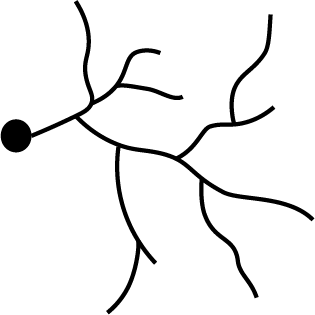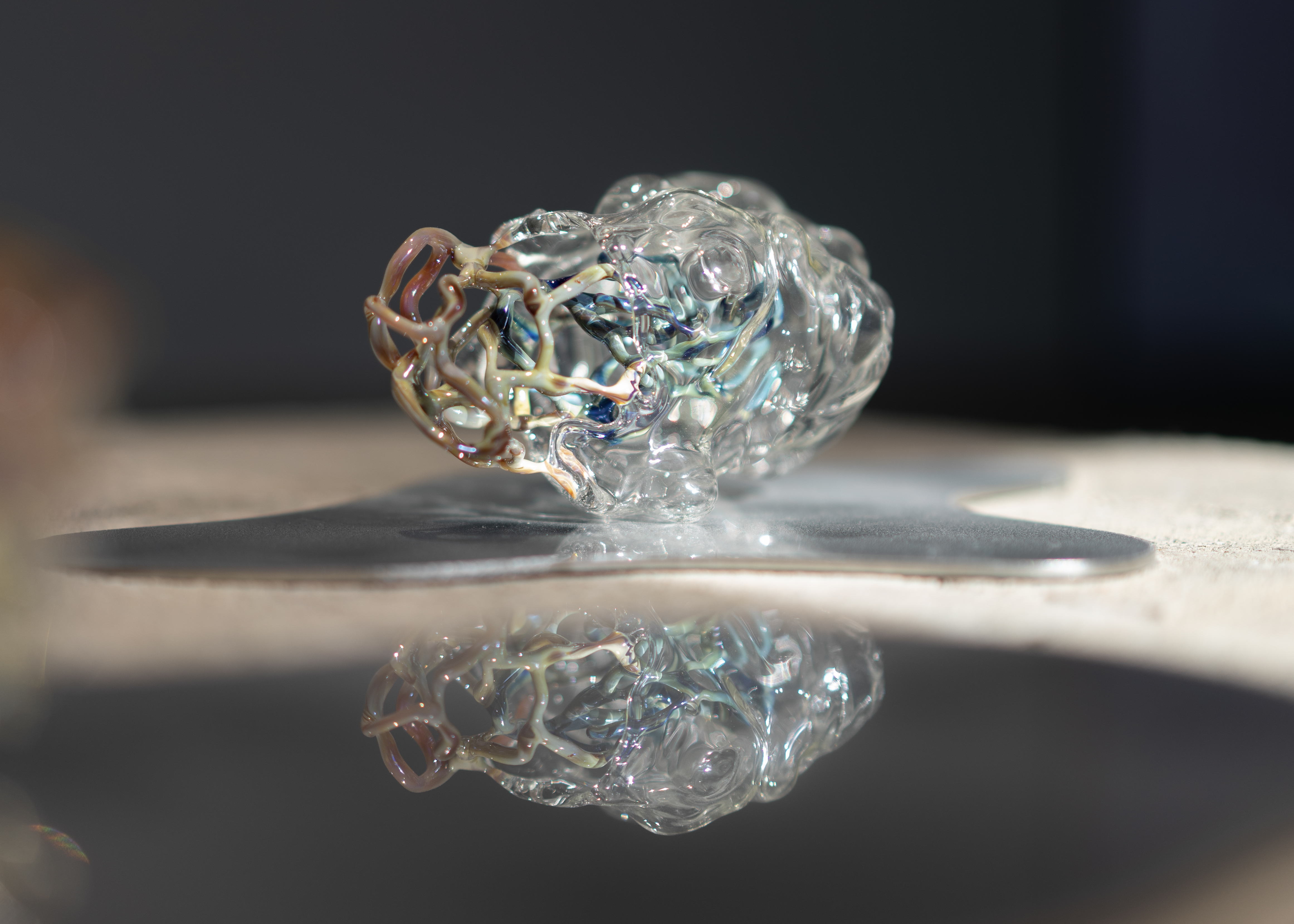
Intimacy of Strangers III, 2023, handhand-blown borosilicate glass, 15.2 x 12.7 x 12.7 cm
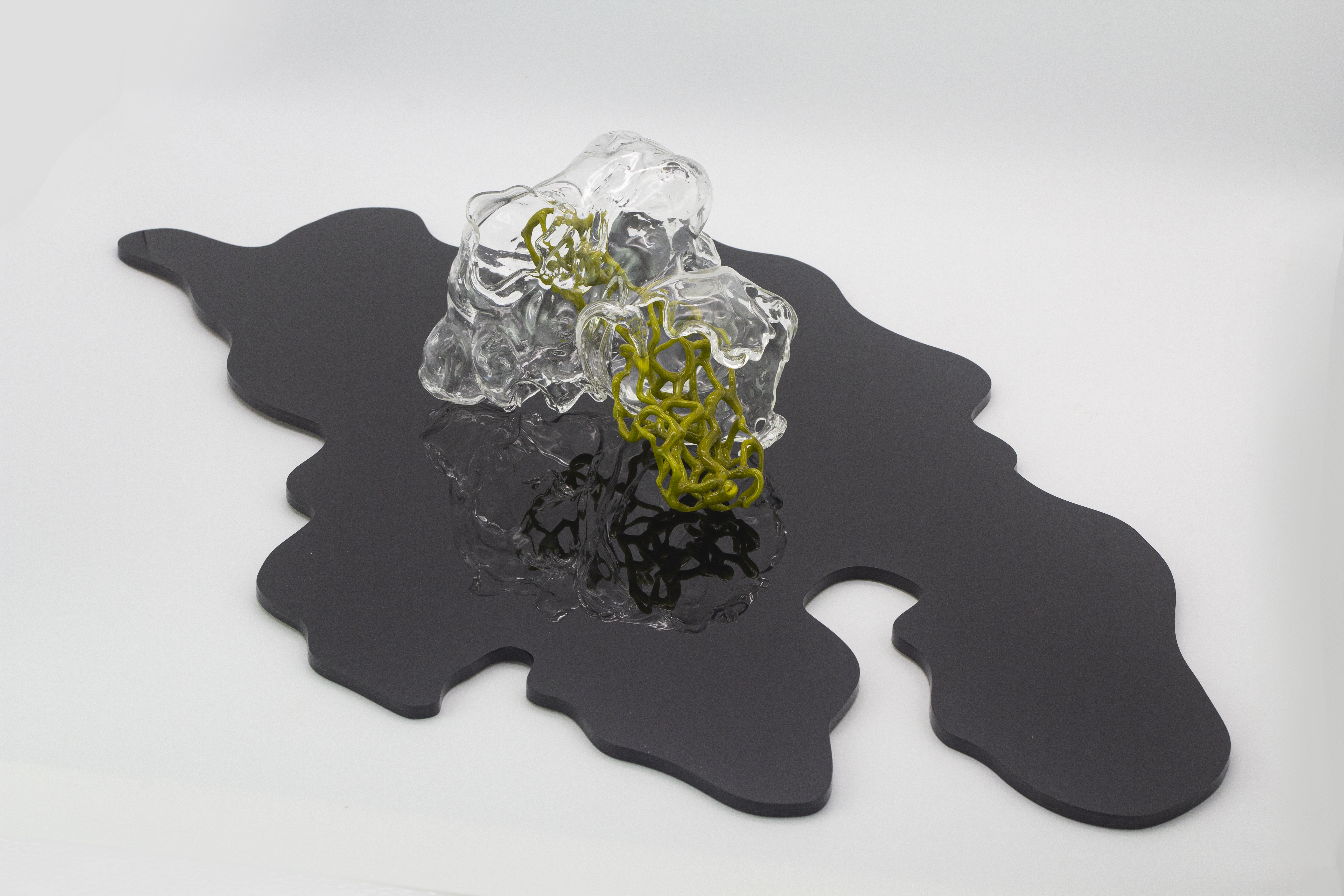 Body of Indeterminism II, 2022, handblown borosilicate glass, 9 x 7 x 5 inches
Body of Indeterminism II, 2022, handblown borosilicate glass, 9 x 7 x 5 inches Body of Indeterminism I, 2022, handblown borosilicate glass, 12 x 5 x 5 inches
Body of Indeterminism I, 2022, handblown borosilicate glass, 12 x 5 x 5 inches Core III, 2021, colored borosilicate glass, 10 x 7 x 6 inches
Core III, 2021, colored borosilicate glass, 10 x 7 x 6 inches
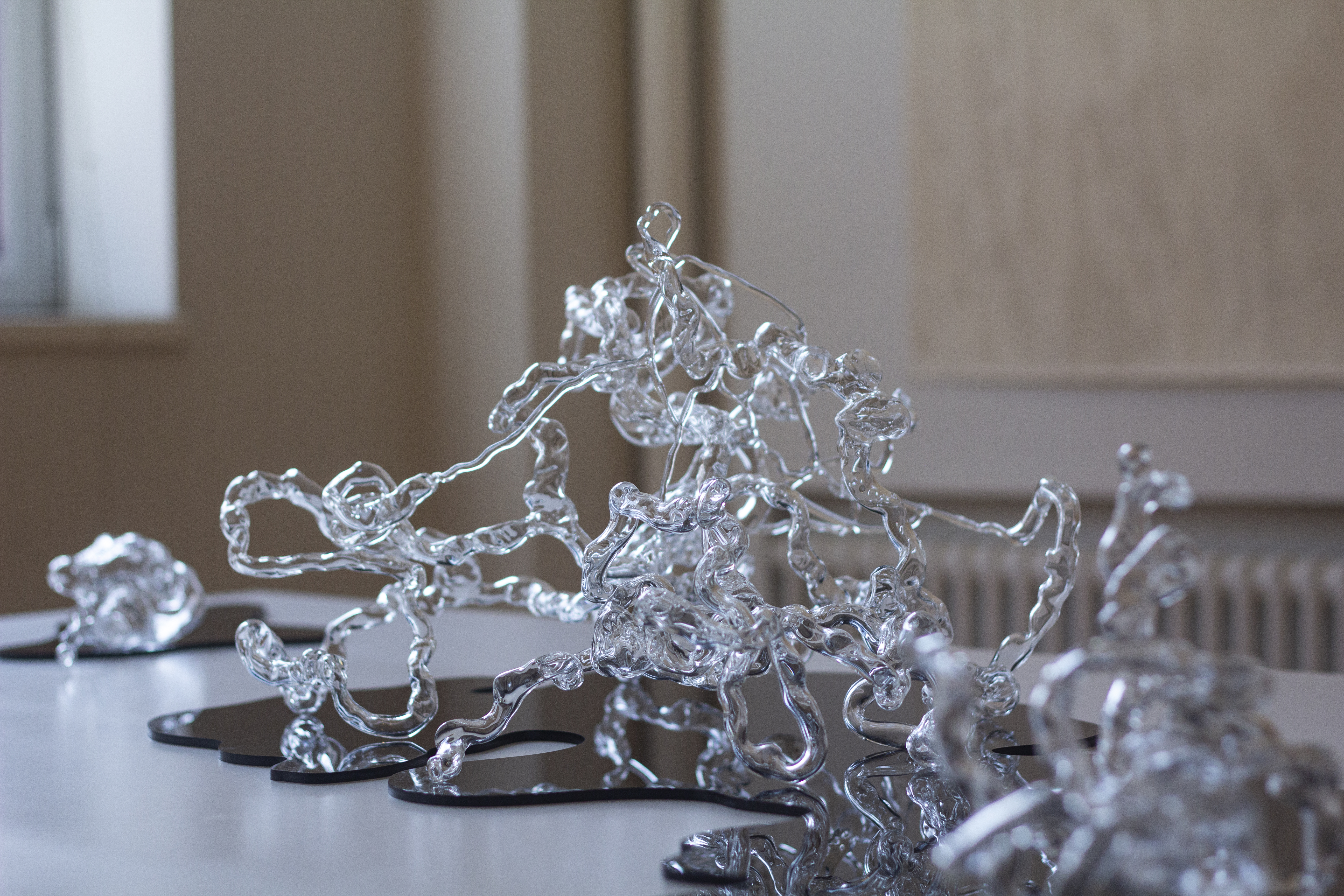
Many-heads, 2021, clear borosilicate glass, 25 x 18 x 20 inches, 15 x 9 x 7 inches, 11 x 5 x 4 inches
 Before tentacle, 2023, color borosilicate glass, 15 x 6 x 6 inches
Before tentacle, 2023, color borosilicate glass, 15 x 6 x 6 inches Calcifer I, 2023, hand-blown colored borosilicate glass, aluminite, 17 x 18 x 15 cm
Calcifer I, 2023, hand-blown colored borosilicate glass, aluminite, 17 x 18 x 15 cm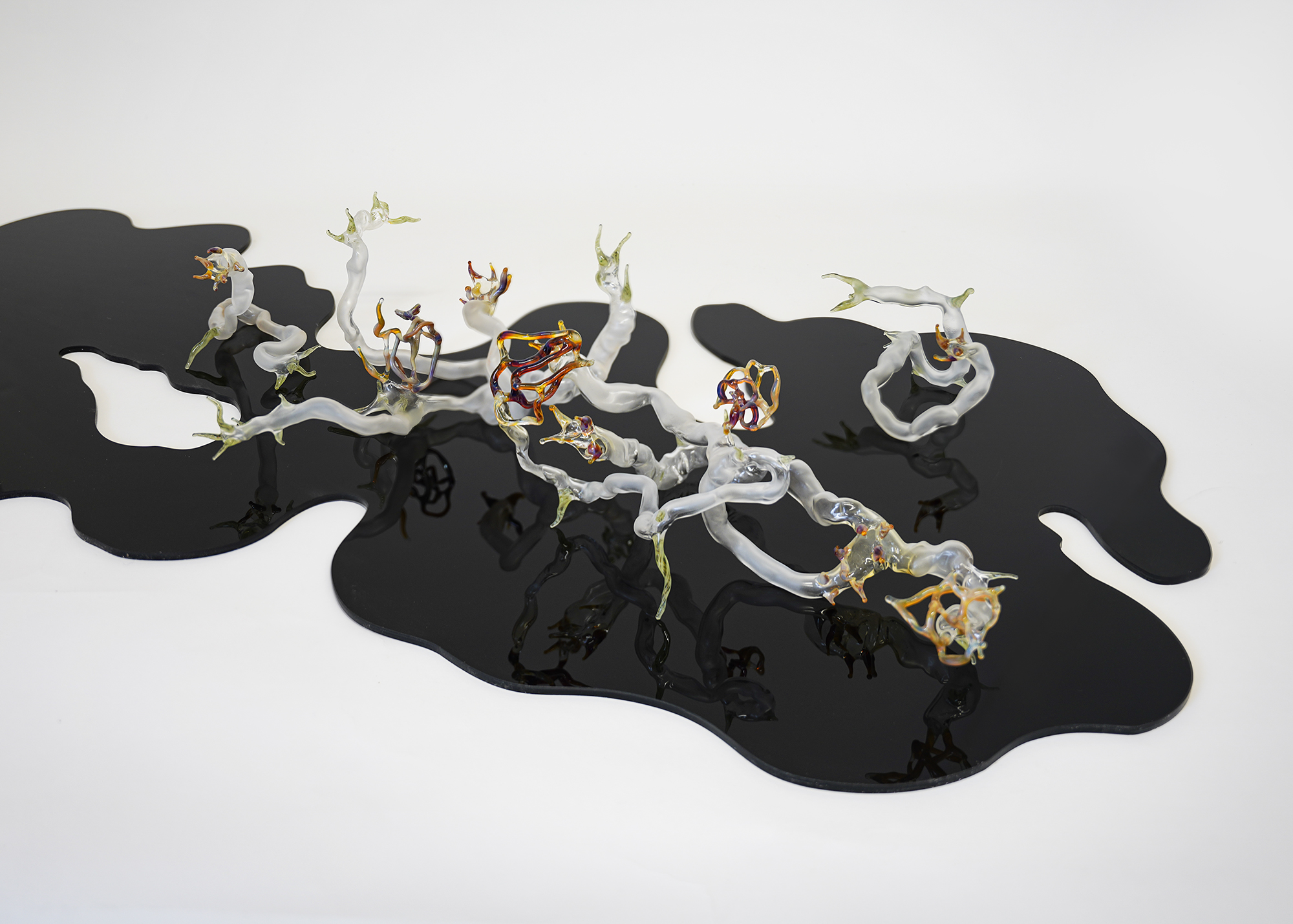
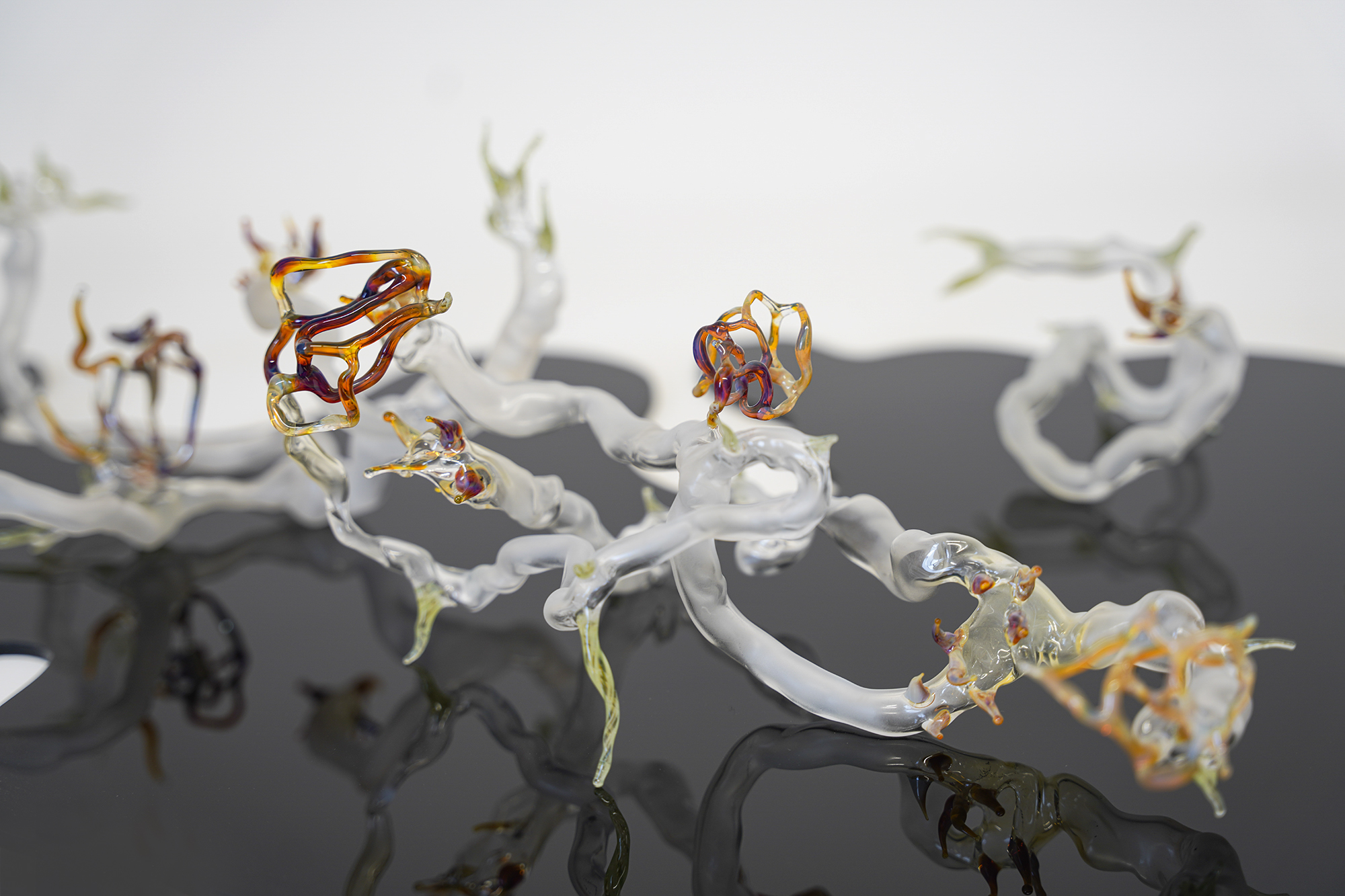 Perilous tender, 2024, hand-blown colored borosilicate glass, 45 x 38 x 15 cm
Perilous tender, 2024, hand-blown colored borosilicate glass, 45 x 38 x 15 cm
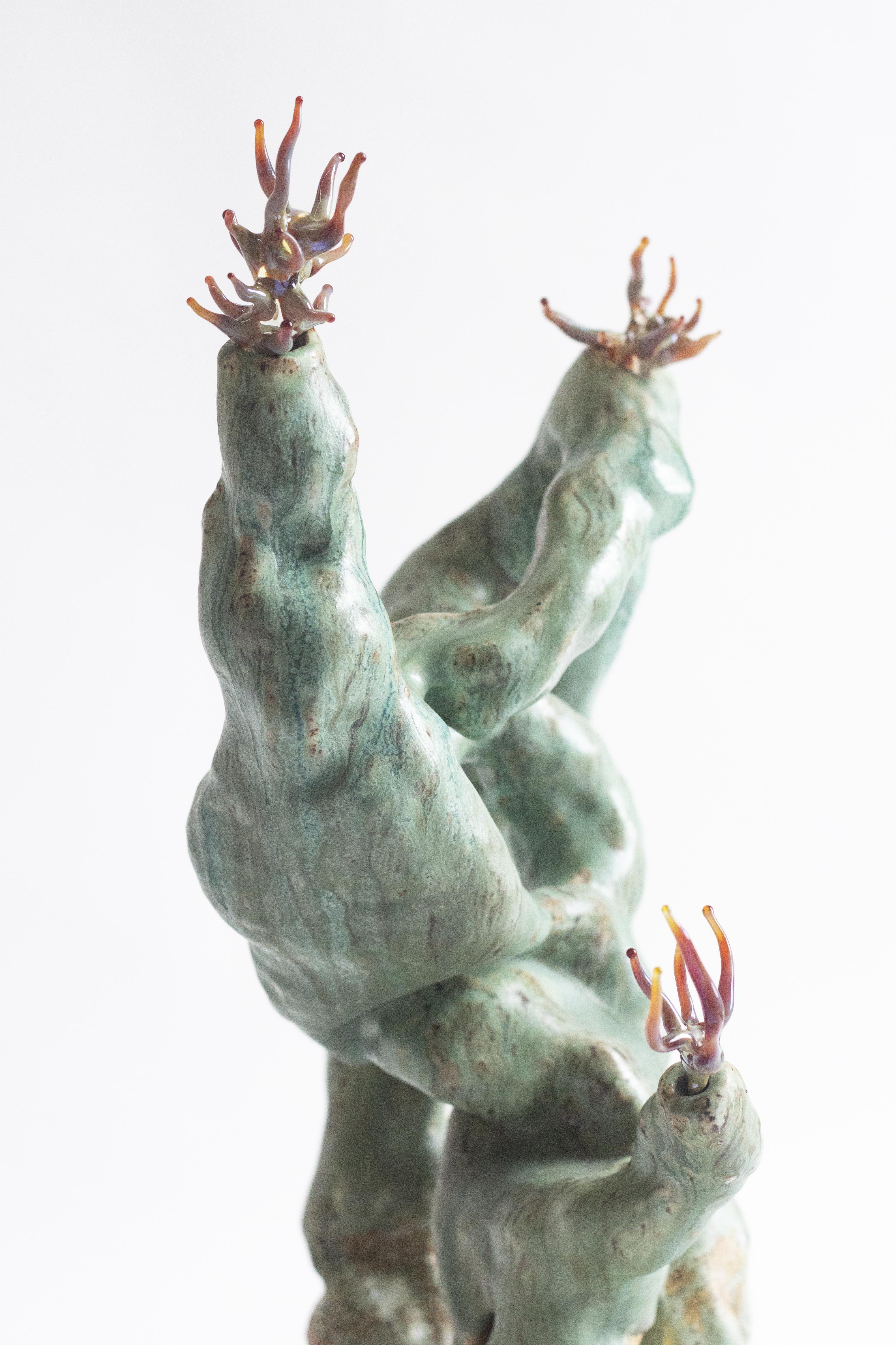
Precarious Encounter II, 2023, stoneware, glaze, color borosilicate glas, 10 x 8 x 19 inches

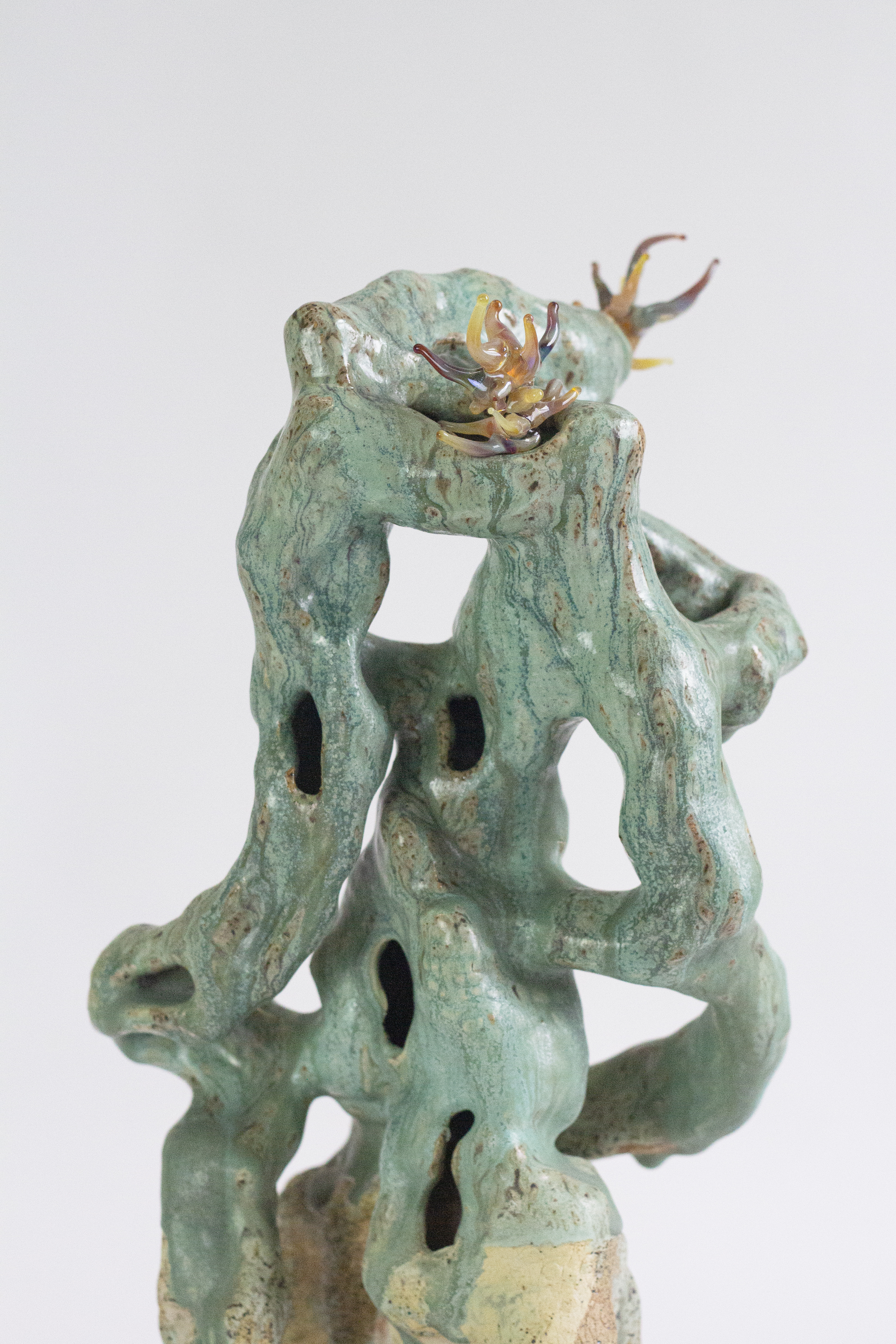 Precarious Encounter III, 2023, stoneware, glaze, color borosilicate glass, 10 x 8 x 19 inches
Precarious Encounter III, 2023, stoneware, glaze, color borosilicate glass, 10 x 8 x 19 inches
 Precarious Encounter I, 2021, stoneware, glaze, borosilicate glass, 12 x 7 x 8 inches
Precarious Encounter I, 2021, stoneware, glaze, borosilicate glass, 12 x 7 x 8 inches Symbiont, 2023, glazed stoneware, 14 x 12 x 8 inches
Symbiont, 2023, glazed stoneware, 14 x 12 x 8 inches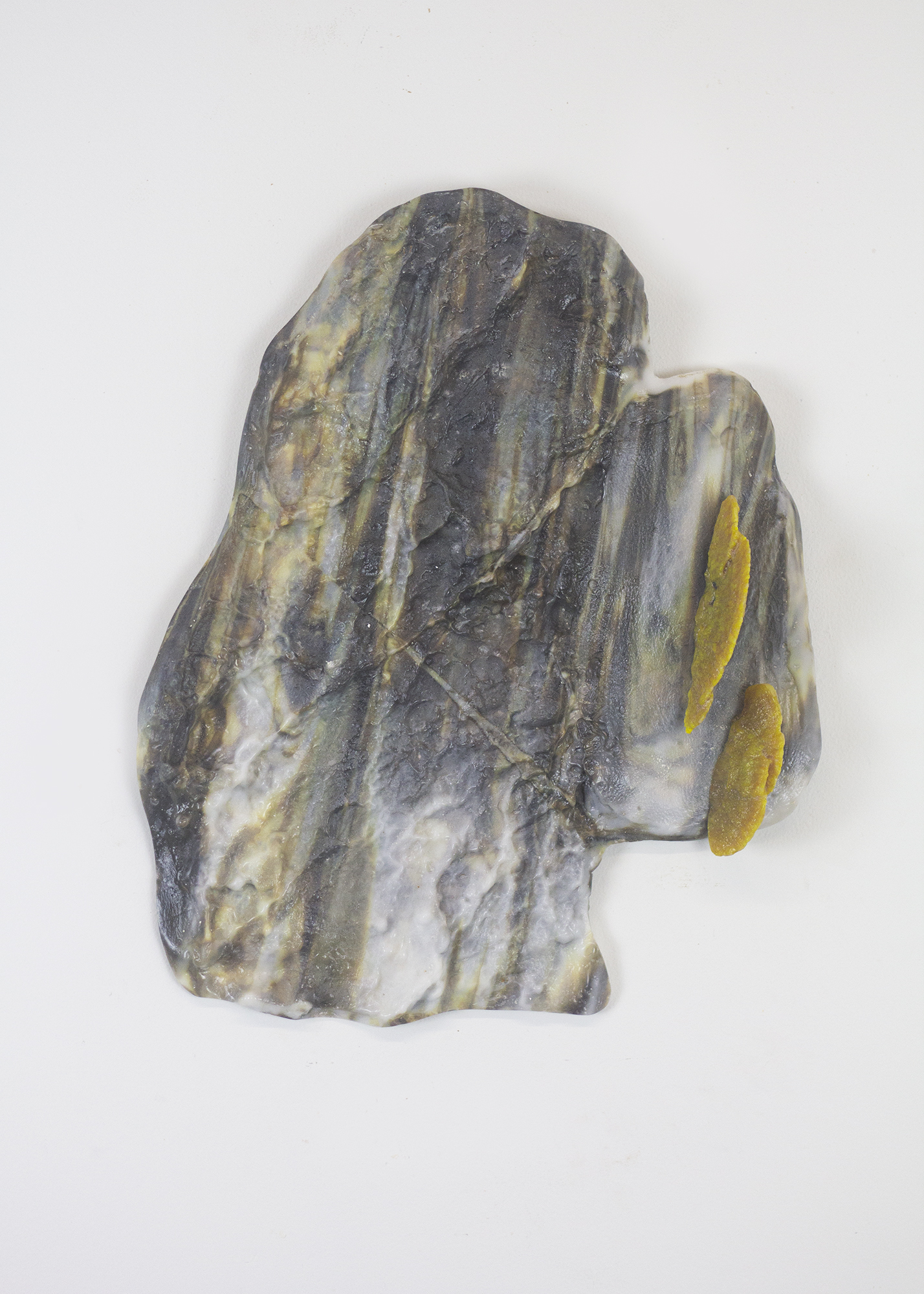
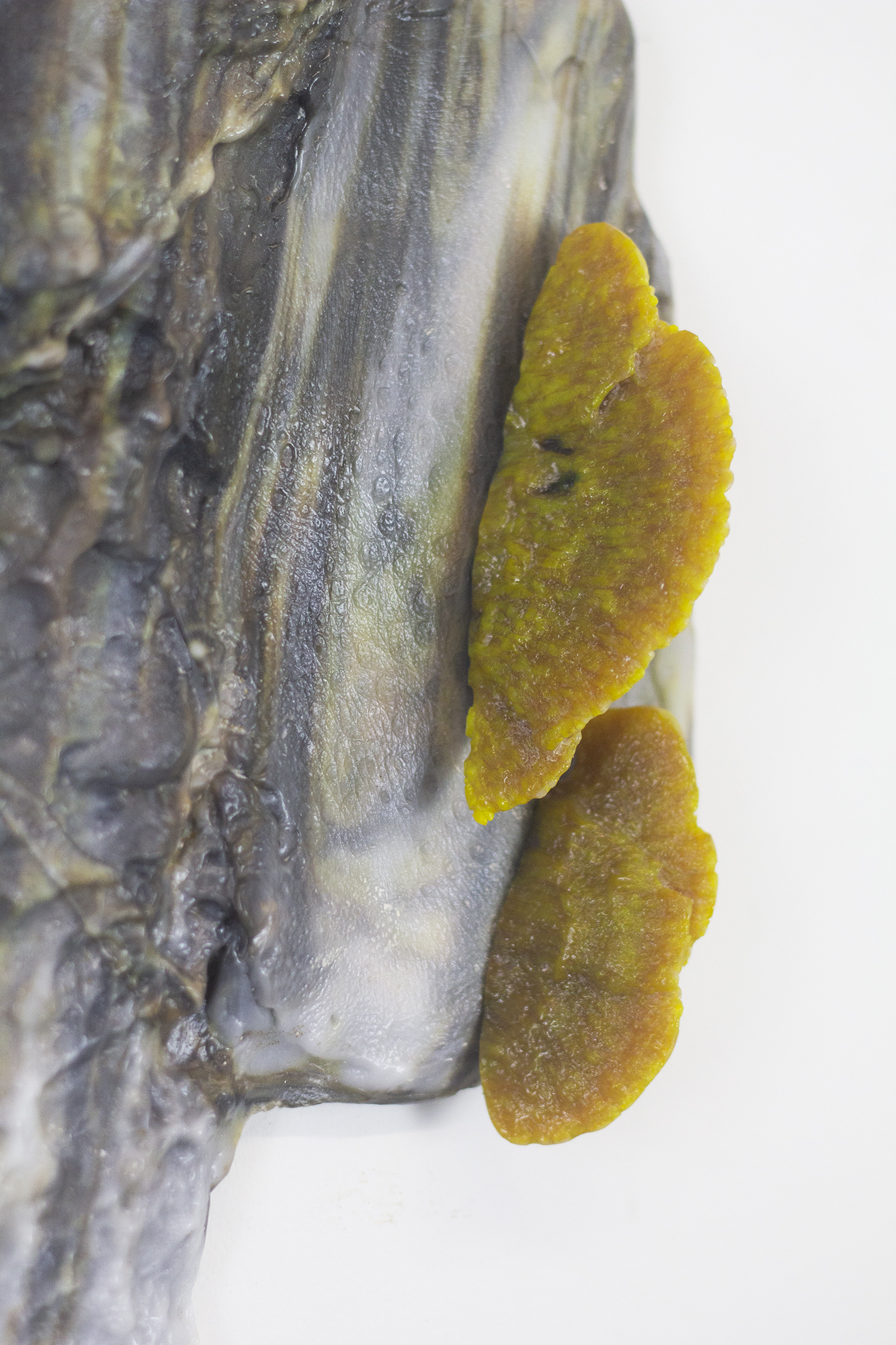 Subsurface (fungus), 2021, kiln-formed glass, 16 x 13 x 4 inches
Subsurface (fungus), 2021, kiln-formed glass, 16 x 13 x 4 inches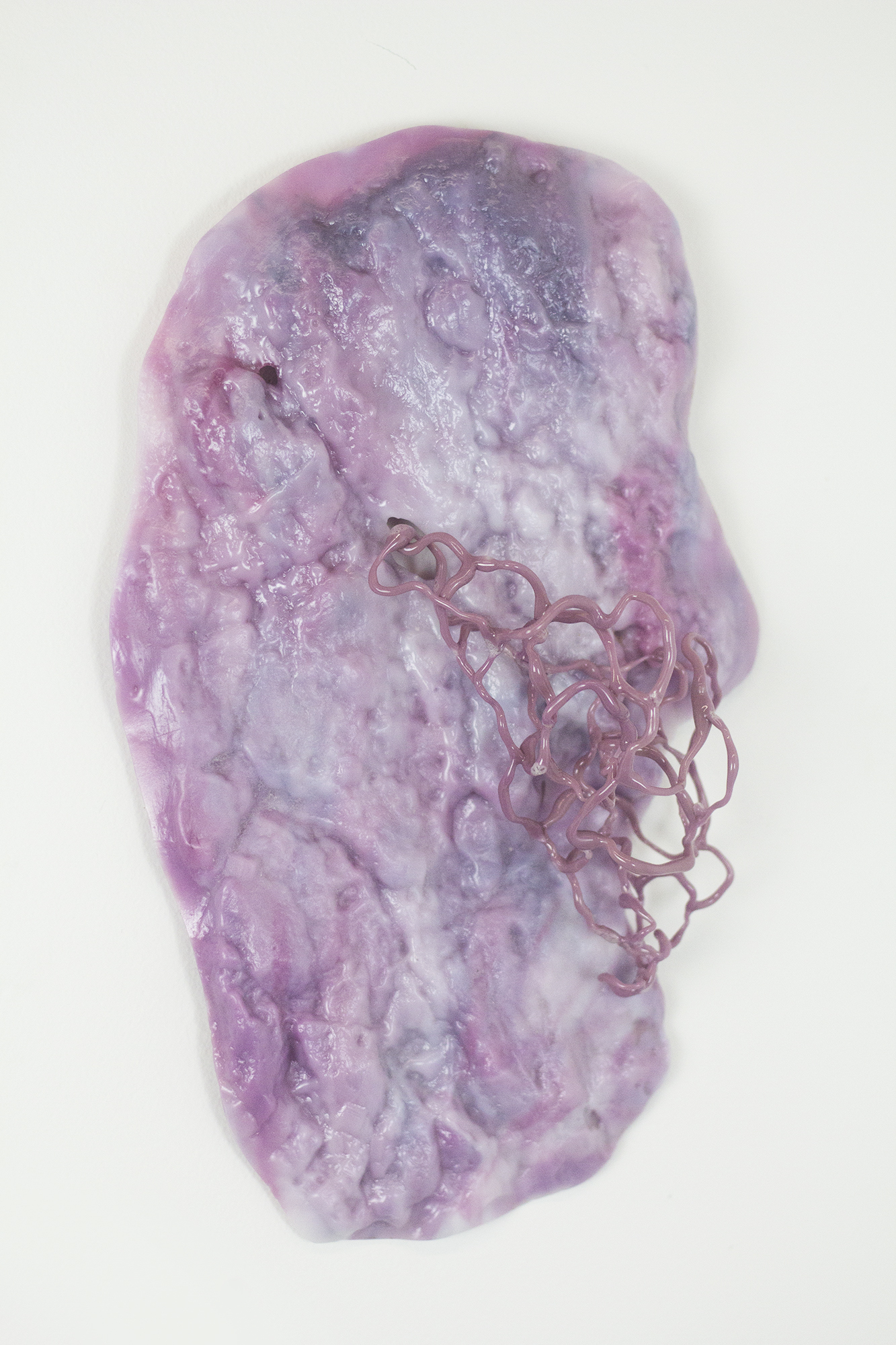 Subsurface (lichen), 2021, kiln-formed glass, borosilicate glass, 15 x 12 x 6 inches
Subsurface (lichen), 2021, kiln-formed glass, borosilicate glass, 15 x 12 x 6 inches
